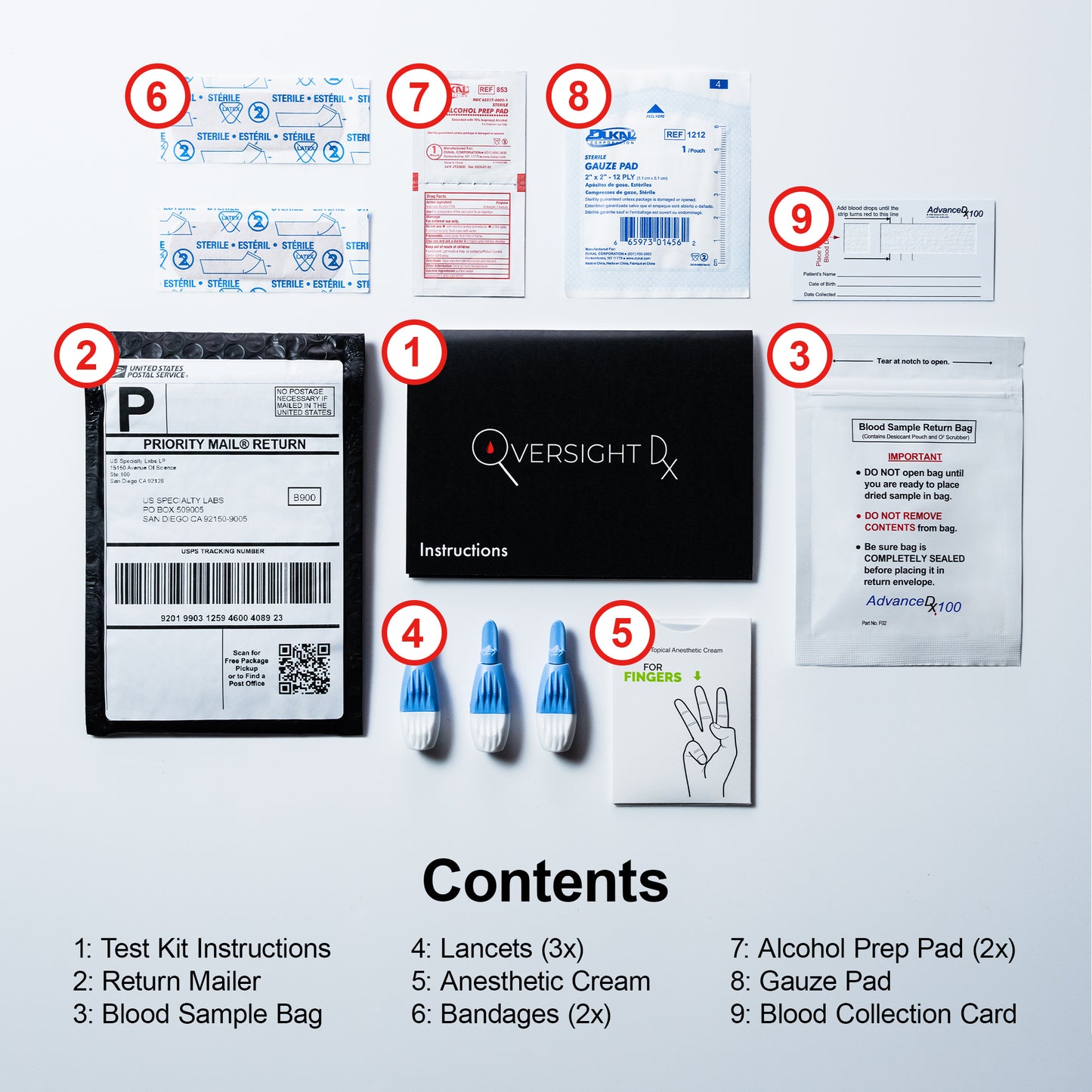Oversight Dx
Lipid Panel (CHOL, HDL, LDL, TRIG)
Lipid Panel (CHOL, HDL, LDL, TRIG)
Couldn't load pickup availability
This test measures Total Cholesterol, HDL, Calculated LDL, and Triglycerides.
Cholesterol is a waxy substance found in your blood. Your body needs cholesterol to build healthy cells, but high levels of cholesterol can increase your risk of heart disease. With high cholesterol, you can develop fatty deposits in your blood vessels.
LDL (Low-Density Lipoprotein), sometimes called “bad” cholesterol, makes up most of your body's cholesterol. High levels of LDL cholesterol raise your risk for heart disease and stroke.
HDL (High-Density Lipoprotein), or “good” cholesterol, absorbs cholesterol and carries it back to the liver. The liver then flushes it from the body. High levels of HDL cholesterol can lower your risk for heart disease and stroke.
A triglycerides test measures the amount of triglycerides in your blood. Triglycerides are a type of fat in your body. If you eat more calories than you need, the extra calories are changed into triglycerides. These triglycerides are stored in your fat cells for later use.
Share








